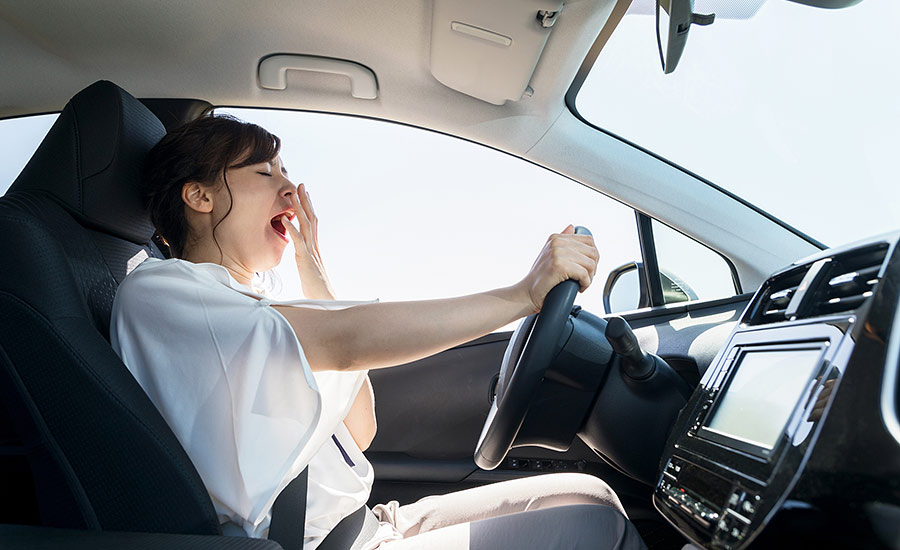Driver Fatigue: Lessons From A Personal Injury Attorney

Driver fatigue is a serious problem that is becoming bigger by the day. There are thousands of accidents every year, and the fast paced, technological world we live in today is certainly not helping to lower the accident rate in our country. Sleep deprivation is becoming increasingly more common among people of all ages. According to the National Sleep Foundation, the National Highway Traffic Safety Administration estimates that 100,000+ police reported crashes are the result of driver fatigue. These crashes result in approximately 1,550 deaths each year. That’s 1,550 lives that could be saved by getting more rest or not driving when drowsy! Unfortunately, there is no test (like a breathalyzer) to determine if a driver is too sleepy to drive.
The National Sleep Foundation also reminds us of the high personal and economic costs that are risked by driving while fatigued. If you cause a car accident due to driver fatigue you can face jail time as well as steep fines and high automobile insurance costs. Multi-million dollar settlements have been won by families of crash victims against the at fault driver.
As a personal injury attorney, I am all too familiar with the results of crashes due to driver fatigue. Here are some tips that you can follow in order to avoid being a fatigued, at fault driver in a crash:
- Be mindful of early morning driving. Most crashes caused by tired drivers occur between 2am and 6am.
- Be mindful of afternoon driving, too. Afternoon naps are great, but not while you’re driving! The second most popular time of day for crashes caused by tired drivers is between 2pm and 4pm.
- Know if you’re at risk. Male drivers between the ages of 18-29, truck drivers, adults with children, and shift workers are more likely to suffer from driver fatigue. You’re also more likely to fall asleep while driving on a high speed, long, boring highway.
- Take a nap and have a coffee. Seriously! Pulling off the road for a short nap (20 minutes or so) and having a caffeinated beverage can help keep you awake long enough for you to get where you’re going.
- Avoid alcohol and over the counter drugs that cause drowsiness. This should go without saying, but if you know you’ve got a drive ahead of you, avoid alcohol and sleep inducing drugs.
If you or someone you know has been the victim of a car crash, you deserve compensation. Call me today for your free consultation at (770) 744-5250. I’ll gather all the facts and evidence in your case to make sure that you are fairly compensated for any loss suffered.
